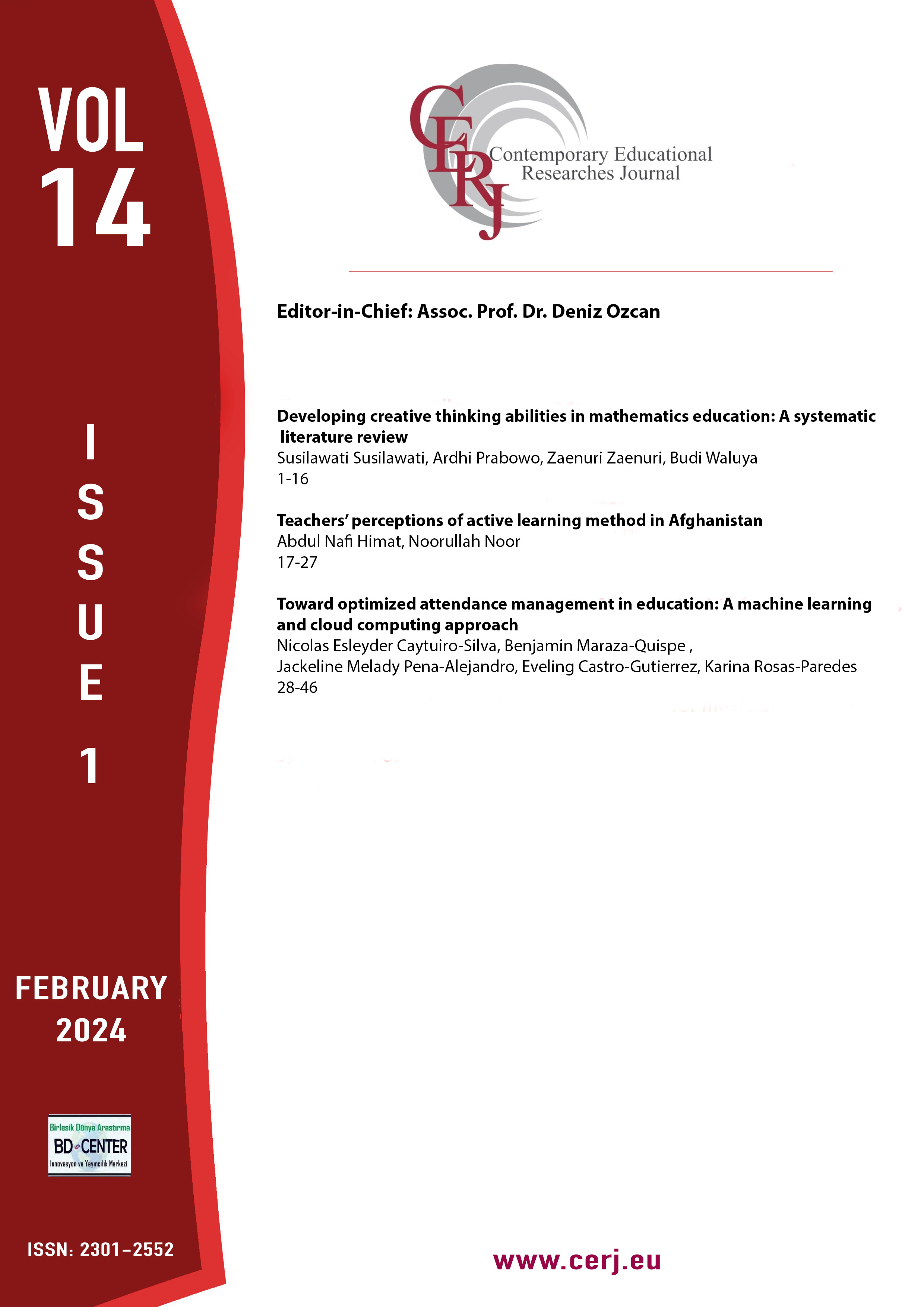Developing creative thinking abilities in mathematics education: A systematic literature review
Main Article Content
Abstract
Mathematical creative thinking ability is the ability to think logically and divergently to produce ideas or various kinds of solutions to given mathematical problems. This systematic review of literature aims to look at research trends related to creative thinking abilities in mathematics education, indicators, research methodology, and learning models used in developing mathematical creative thinking abilities. A Systematic Literature Review (SLR) was carried out using the PRISMA method. This paper reviews 30 research articles from 2019 to 2023 from which such data were obtained from Scopus. The findings show that research themes such as tests, abilities, and creative thinking have been widely carried out. Indicators of creative thinking abilities that are often used are fluency, flexibility, and originality. The learning models or approaches that are widely used in developing creative thinking skills in mathematics education are contextual learning models such as problem-based learning and STEM/STEAM. These findings are useful for researchers and teachers.
Keywords: Creative thinking; learning model; mathematics education; PRISMA; systematic literature.
Downloads
Article Details

This work is licensed under a Creative Commons Attribution-NonCommercial-NoDerivatives 4.0 International License.
Authors who publish with this journal agree to the following terms:
- Authors retain copyright and grant the journal right of first publication with the work simultaneously licensed under a Creative Commons Attribution License that allows others to share the work with an acknowledgement of the work's authorship and initial publication in this journal.
- Authors are able to enter into separate, additional contractual arrangements for the non-exclusive distribution of the journal's published version of the work (e.g., post it to an institutional repository or publish it in a book), with an acknowledgement of its initial publication in this journal.
- Authors are permitted and encouraged to post their work online (e.g., in institutional repositories or on their website) prior to and during the submission process, as it can lead to productive exchanges, as well as earlier and greater citation of published work (See The Effect of Open Access).
